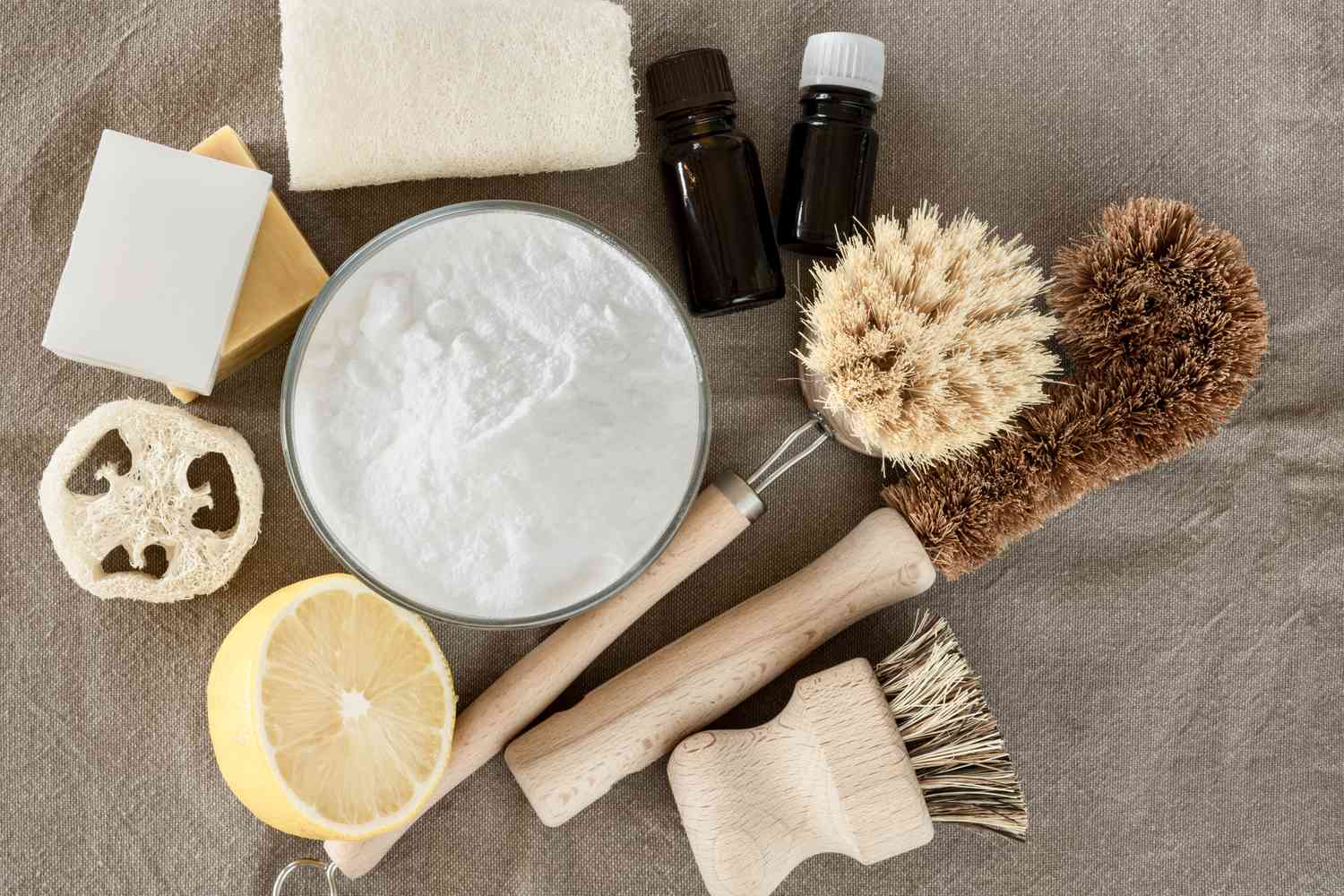Overview
-
Working Time:
5 – 10 minutes
-
Total Time:
5 – 30 minutes
-
Skill Level:
Beginner
-
Estimated Cost:
$0 to $15
Baking soda can neutralize odors, remove stains, clean difficult items, and dissolve grease. And when combined with other clean ingredients like vinegar, it becomes an even stronger cleaning agent.
Baking soda is a naturally occurring form of salt that is made by mixing carbon, sodium, hydrogen, and oxygen molecules. The compound is actually a base, which is why it is such a versatile and powerful cleaner.
Besides the cleaning benefits baking soda offers, it is also used in baking and home beauty recipes, meaning it is safe to digest and not dangerous to children or pets, unlike chemical cleaners. Why even risk harming your health when you can use something as effective and affordable as baking soda to clean your heaviest kitchen messes?
Where Does Baking Soda Come From?
Ancient Egyptians first used what we now consider baking soda by extracting sodium bicarbonate from natural deposits of minerals. It was first used as a teeth cleaner and a base for homemade paints.
While baking soda is naturally occurring, the kind that most people have in their cupboards is usually mined and created through a chemical process in order to turn it into a powder.
Baking soda is a safe ingredient but it can be toxic in very large quantities.
Instructions
The combination of baking soda and vinegar is probably one of the most popular recipes that exist for cleaning.
Because of vinegar’s acidity, baking soda fizzes and releases carbon dioxide when added to this solution. The reaction works in your favor when added to dirt or grease since it will break down the dirt as it releases gas.
Baking soda and vinegar together can be used for dishes, kitchen messes and clogs, and even laundry. While the two can be very powerful on their own, the paste can also be combined with water and liquid soap for a sprayable application.
-
Combine Ingredients
In a reusable spray bottle, funnel in 1.5 cups baking soda, 1/2 cup liquid Castile soap, 2 tablespoons white vinegar, and 2 tablespoons water.
-
Shake
Shake well to combine and for the baking soda to dissolve.
-
Clean
Spray liberally and let sit for very caked-on messes. Essential oils can also be added for a scented spray.
This recipe can be used as a simple, multi-purpose cleaner.
Baking Soda and Water
Science Photo Library / Getty Images
For pots, pans, shiny surfaces, and utensils, a simple baking soda and water combination is the way to go. This can be heated or applied as a paste depending on
-
Mix Ingredients
For cleaning surfaces, make a paste using 2 parts baking soda and 1 part water and apply directly or use a cloth to wipe the surface.
-
Clean Difficult Messes
For pots and pans, spray them with water and sprinkle baking soda lightly over them all. Let this sit for an hour. Then, use a sponge to clean the pots.
For very stuck-on foods, boil some water in the dirty pots and add baking soda to the hot water (2 parts water to 1 part baking soda this time). Let this sit until it cools and then scrub with a sponge.
-
Remove Stains
Water and baking soda together can be used to sponge away stains from coffee or tea mugs, polish utensils, and clean ovens and stoves. In large quantities, it can also be used to mop tile floors.
Baking Soda and Hydrogen Peroxide
Emilija Manevska / Getty Images
While baking soda and hydrogen peroxide together can make a pretty awesome DIY toothpaste, the combination is also pretty effective for cleaning grease, hard water stains, dirty tile and backsplash, and much more.
Hydrogen peroxide on its own is commonly used to treat stains, so it should do wonders with spots or stains plaguing your kitchen.
-
Combine Ingredients
For a paste, mix 3 parts baking soda with 1 part hydrogen peroxide.
-
Make a Spray
For a thin, sprayable mixture, combine 1 part baking soda with 1 part hydrogen peroxide.
-
Clean
Depending on how dirty your surface or item is, let the mixture sit for 10 to 15 minutes after applying as a spray or paste. If using a paste, have your sponge ready to get scrubbing.
